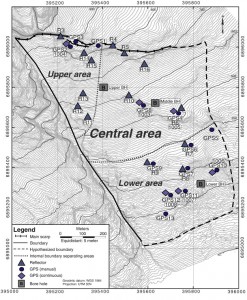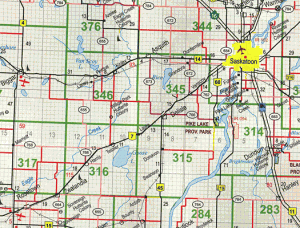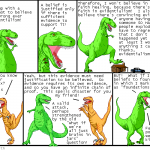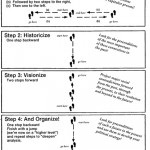As interpretive researchers we observe in order to make sense. And we know that our perspective matters in what we see. The kind of perspective I am talking about here is not so much our personal lenses, but the circumstances that allow (or don’t allow) us to see.  If I am in an airplane I see in a particular way… I get the big macro picture. The patterns that are apparent from 30,000 feet up are not so easily discernible if I am on the ground. From the air one gets a sense, for example, of the nature of land sharing and use for agriculture. It is also possible to enjoy a joke that is accessible only from this same perspective.
If I am in an airplane I see in a particular way… I get the big macro picture. The patterns that are apparent from 30,000 feet up are not so easily discernible if I am on the ground. From the air one gets a sense, for example, of the nature of land sharing and use for agriculture. It is also possible to enjoy a joke that is accessible only from this same perspective.

When one is driving or walking in that same space, the perspective changes and one gets a micro view, but necessarily loses sight of the bigger aerial perspective picture. What might have been a solid mass of colour or shape from the air now is discernable as individual plants and flowers. What seemed like lines drawn between fields become roads.
What might have been a solid mass of colour or shape from the air now is discernable as individual plants and flowers. What seemed like lines drawn between fields become roads.
In both cases we see something valuable, indeed something complete from that perspective. But only one perspective gives us just that… a complete picture from one vantage point. In doing research we want to capture social phenomena from as many perspectives as possible, to give as thorough an account of the phenomenon as we are able. Knowing that there are always other perspectives as yet unexplored.
 To illustrate just a couple more perspectives for this example, consider a GPS map or a road map.
To illustrate just a couple more perspectives for this example, consider a GPS map or a road map.
Being aware of the possibilities of multiple perspectives should not be seen as a limitation, but rather an opportunity to think outside a single researcher, research framework, or methodology when we strive to understand social phenomena as fully as we are able.
 Follow
Follow





